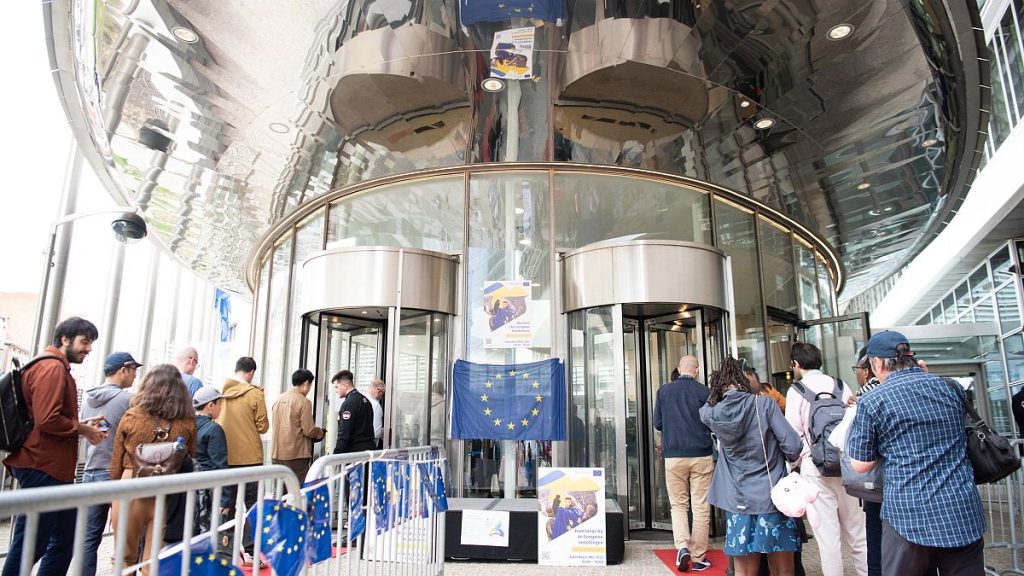The move of a senior European Commission antitrust official to a private law firm has sparked concern over potential conflicts of interest. Emily O’Reilly, the EU’s Ombudsman, has launched a probe into the situation, warning that revolving doors between the public and private sectors can erode public trust and undermine EU interests. The hiring of Henrik Morch by law firm Paul, Weiss, who has extensive experience in handling merger cases during his 30-year career at the Commission, has raised suspicions of insider knowledge being exploited for the benefit of the law firm’s clients. O’Reilly has called on the Commission to disclose any restrictions imposed on Morch’s move and to reform its practices to prevent similar situations in the future.
This latest controversy follows a pattern of senior officials from the EU institutions moving to private firms that work in related issues, prompting concerns about potential conflicts of interest. O’Reilly’s probe comes on the heels of previous cases, such as the move of Carles Esteva Mosso, a deputy director-general at DG COMP, to a private firm, and the hiring of Adam Farkas, executive director of the EU’s banking agency, by a lobbying group. The issue of officials transitioning between public and private roles has been a subject of scrutiny, particularly in light of the impact it can have on public trust and the image of the EU as a whole. O’Reilly’s investigation aims to shed light on the circumstances surrounding Morch’s move and to push for greater transparency and accountability in such transitions.
Transparency International has raised concerns about conflicts of interest among MEPs who earn additional income from jobs outside of their role as lawmakers. While these extra paid positions are currently allowed under existing rules, there are worries about potential conflicts of interest when MEPs work for companies that lobby the EU. With the European elections on the horizon, the issue of accountability and transparency in political roles has become a focal point for scrutiny and debate. O’Reilly’s investigation into Morch’s move to Paul, Weiss is part of a broader effort to address concerns about the potential for abuse of insider knowledge and influence in the public-private sector transition.
The lack of clarity from both Paul, Weiss and the Commission regarding Morch’s move has raised suspicions about the motives behind the transition and the potential implications for competition and antitrust cases. O’Reilly’s call for the Commission to reform its practices in light of previous controversial hires underscores the importance of maintaining public trust and confidence in EU institutions. The need for greater transparency and accountability in the public-private sector transition is paramount to prevent conflicts of interest and uphold ethical standards in decision-making processes. The outcome of O’Reilly’s probe into Morch’s move will likely have significant implications for future cases involving senior officials transitioning to private firms.
The potential for conflicts of interest in the public-private sector transition has been the subject of ongoing concern, particularly in high-profile cases involving senior officials with insider knowledge of sensitive issues. O’Reilly’s investigation into Morch’s move to Paul, Weiss highlights the need for greater scrutiny and accountability in such transitions to ensure the integrity and transparency of decision-making processes. The implications of this case for public trust in EU institutions and the impact on EU interests underscore the importance of addressing conflicts of interest and ethical concerns in the public-private sector transition. As the investigation unfolds, the focus will likely shift to the broader implications of such transitions and the steps needed to prevent abuses of power and influence in the future.
In conclusion, the move of a senior European Commission antitrust official to a private law firm has raised concerns about potential conflicts of interest and the impact on public trust and EU interests. O’Reilly’s probe into the circumstances surrounding Morch’s move underscores the need for greater transparency and accountability in the public-private sector transition. The broader issue of conflicts of interest among MEPs and senior officials transitioning to private firms has come under scrutiny, highlighting the need for reform and stricter regulations to prevent abuse of insider knowledge and influence. As the investigation progresses, the focus will likely shift to the broader implications of such transitions and the steps needed to uphold ethical standards and maintain public trust in EU institutions.


